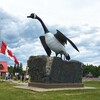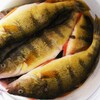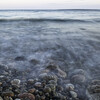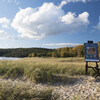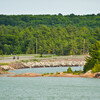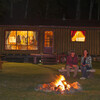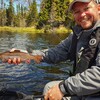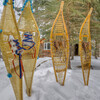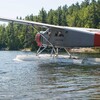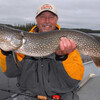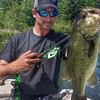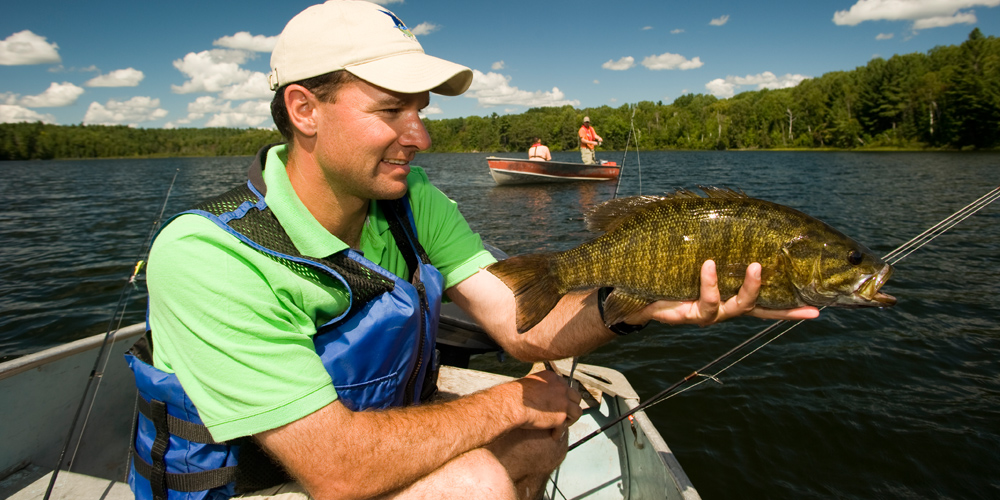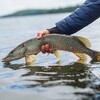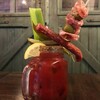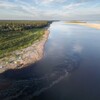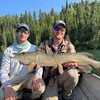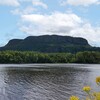
Learning Fall Steelhead
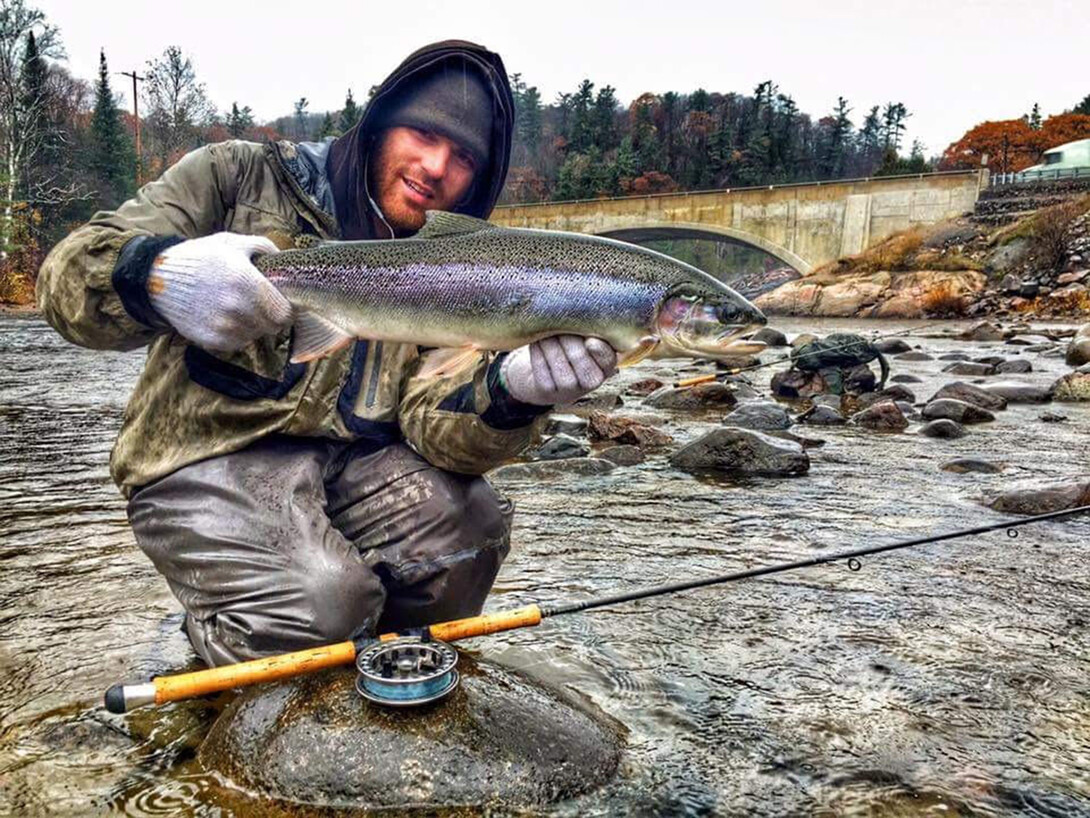
As fall is on its way, I can't help but think about the next time I can fight with one of the hardest fighting and most beautiful fish that inhabit our waters: the steelhead, or as some people know them, the rainbow trout.
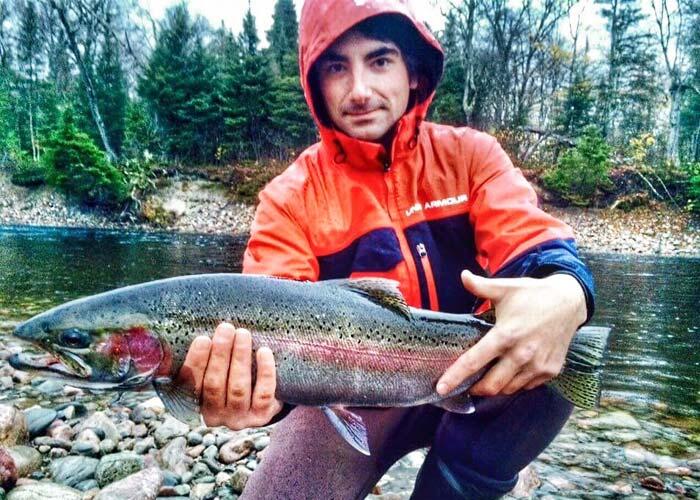
As the spring runs are what most people look forward to, I tend to spend most of my early season chasing bass and am not able to chase a variety of fish. But I am always sure to make time to get out on my annual trip (or two) in the fall for steelhead.
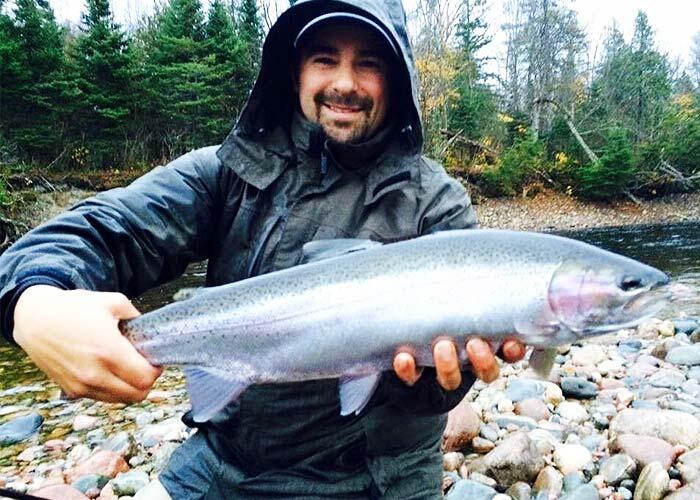
I look forward to hitting the rivers and tributaries around the Algoma region with good friends and fishing guide Tyler Dunn each year. It's a special treat to be able to learn from someone who really knows these waters and knows exactly how to catch these amazing fish.
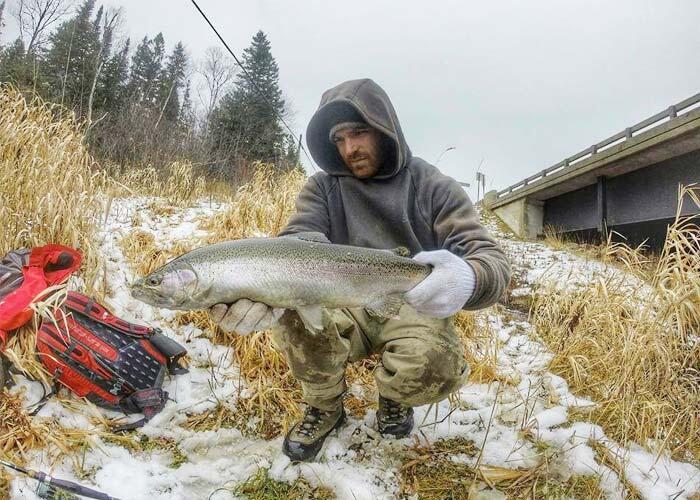
From the St. Marys Rapids and St. Marys River to all the tributaries up the Lake Superior coast, Tyler knows where we should go given the conditions over the prior days. Weather, temperature, and water conditions like current and rainfall, are all huge factors that determine where these fish will be and set up. If the conditions aren't right, it makes it extremely hard to have a good day.
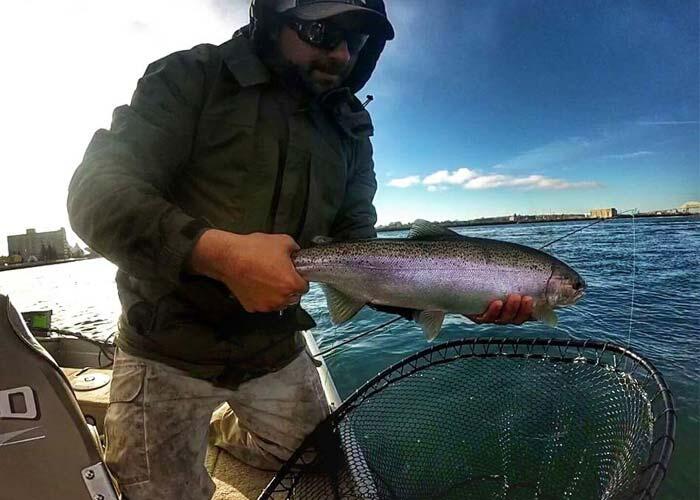
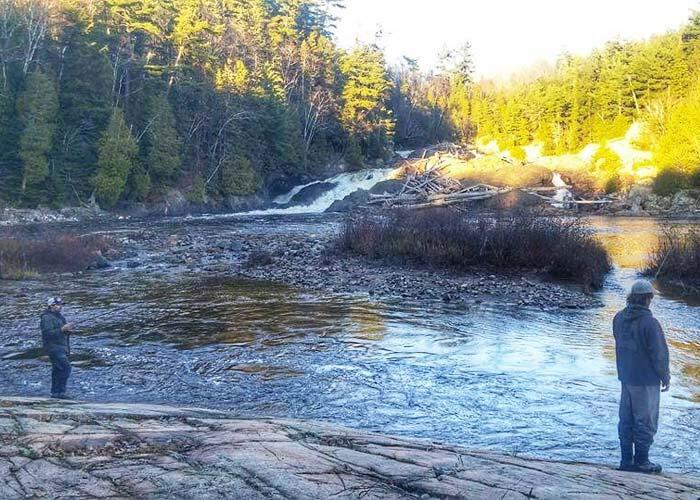
I am not an avid steelhead angler, so I do not own a float rod and reel setup that is ideal for drifting floats and catching these fish; I have to get by with a regular spinning or casting rod setup.
With my setup, the essential part is the line. I always use a braided line as it floats on the water and will not create drag, thus making your float and lure presentation look very natural. I then attach my float and about 10 feet of 6- to 8-pound fluorocarbon line which sinks and is invisible in the water. Use floats from 8- to 11-grain depending on the current situation. Under my float is enough to split shot to make the float sit perfectly upright in the water. At the end will be a small size 10 trout hook tipped with a spawn sac or small jig.
If you are float fishing, your drift is key. Make sure the bail on your reel is always open and seamlessly feeding outline through your drift, but you also have to be quick on your hooksets as they tend to bite and let go very quickly. As for "hardware" fishing or using casting lures, there are really two lure choices: a spoon and a spinner. Little Cleos and large Blue Fox Spinners are top choices in these rivers.
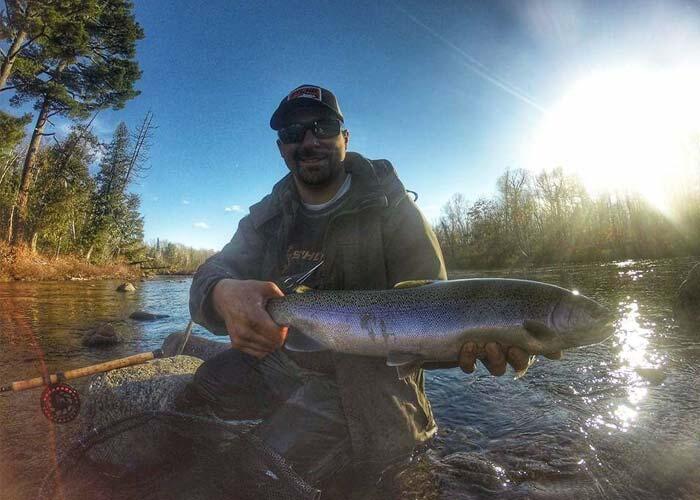
Whether you are a seasoned fisherman or not, having someone with the knowledge and know-how to make your day on the water that much more enjoyable makes all the difference. A guide will teach you so many new things and will always come prepared for anything. They can make a slow day on the water a very informative and successful one no matter what. I highly recommend that if you have never been on a guided trip, do so. You'll be very happy you did.
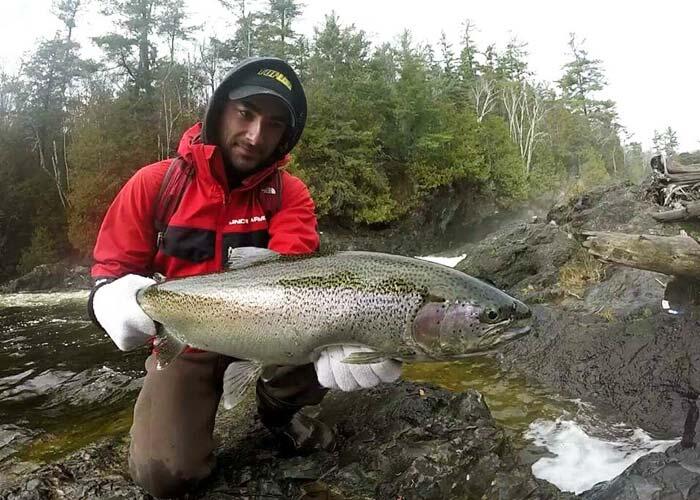
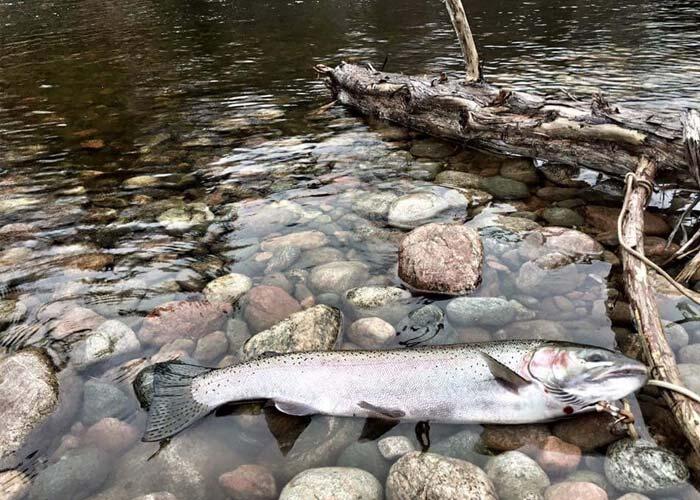
Recommended Articles
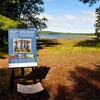
The Group of Seven in Algoma

9 Facts to Know about the Agawa Canyon Tour Train
